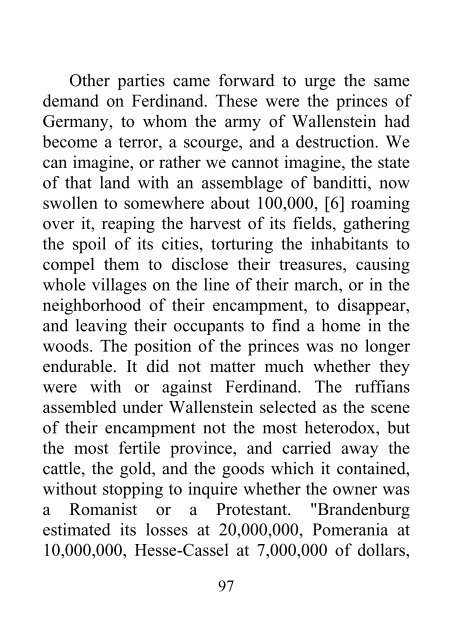The Thirty Years' War - James Aitken Wylie
- No tags were found...
You also want an ePaper? Increase the reach of your titles
YUMPU automatically turns print PDFs into web optimized ePapers that Google loves.
Other parties came forward to urge the same<br />
demand on Ferdinand. <strong>The</strong>se were the princes of<br />
Germany, to whom the army of Wallenstein had<br />
become a terror, a scourge, and a destruction. We<br />
can imagine, or rather we cannot imagine, the state<br />
of that land with an assemblage of banditti, now<br />
swollen to somewhere about 100,000, [6] roaming<br />
over it, reaping the harvest of its fields, gathering<br />
the spoil of its cities, torturing the inhabitants to<br />
compel them to disclose their treasures, causing<br />
whole villages on the line of their march, or in the<br />
neighborhood of their encampment, to disappear,<br />
and leaving their occupants to find a home in the<br />
woods. <strong>The</strong> position of the princes was no longer<br />
endurable. It did not matter much whether they<br />
were with or against Ferdinand. <strong>The</strong> ruffians<br />
assembled under Wallenstein selected as the scene<br />
of their encampment not the most heterodox, but<br />
the most fertile province, and carried away the<br />
cattle, the gold, and the goods which it contained,<br />
without stopping to inquire whether the owner was<br />
a Romanist or a Protestant. "Brandenburg<br />
estimated its losses at 20,000,000, Pomerania at<br />
10,000,000, Hesse-Cassel at 7,000,000 of dollars,<br />
97

















